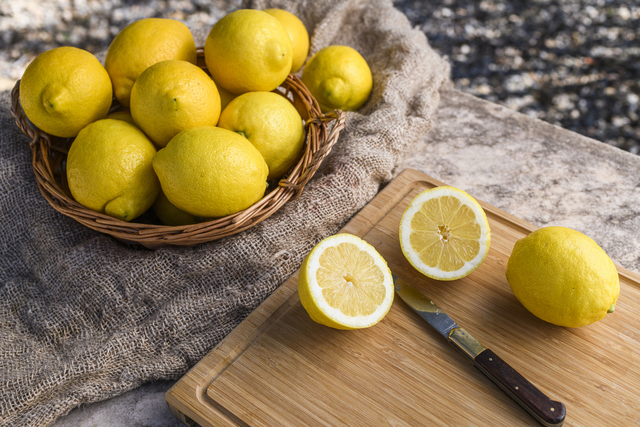Why is it advisable to use lemon vitamin C during the winter?
February 23, 2022 (PRLEAP.COM) Health News
Madrid - Although this winter has reached its peak between late January and early February, with heavy snowfall especially in the central and eastern states, Phil the groundhog has predicted that there are still several weeks to go until the coats are put away in the closet. Thus, the period of the year when low temperatures make us more susceptible to certain diseases and ailments related to them continues, so during this time special care must be taken not to fall ill. In fact, both viruses and bacteria tend to thrive in cold and dry conditions, highlighting the importance of consuming lemon for its high vitamin C content.
In addition, Omicrom has had a significant impact throughout the country, after two years of the pandemic, surpassing the records of the autumn wave, derived from the Delta variant.
This citrus fruit not only acts as a gastronomic ingredient, but is also an important source of vitamin C, since in 100 g of lemon there are about 50 mg of this nutrient; that is, almost half of the daily intake recommended by health experts, which in adults ranges between 95 and 110 mg per day, as advised by the National Institute of Health (NIH) in the document 'Vitamin C: Fact Sheet for Consumers'. The amount even rises to 120 mg for nursing mothers.
Therefore, anyone over the age of 18 should try to consume between two and three lemons a day to cover the need for nutrients required by their own body.
Why use vitamin C in winter?
Because it is necessary to fine-tune the immune system, whose purpose is to develop the defences that shield us from the invasion of viruses and bacteria. And this is where vitamin C comes into play, since, according to the NIH, it helps protect cells against oxidative damage.
Outside of its range of action in the immune system, the vitamin C in lemon also contributes to the normal formation of collagen for the proper functioning of blood vessels, bones, cartilage, skin, teeth and gums. It also contributes to the regeneration of the reduced form of vitamin E, reduces fatigue and body tiredness, and optimizes iron absorption; characteristics that are highly appreciated by sports and health professionals.
However, it should be noted that if there is a lemon that perfectly meets such singularities, it is the lemon produced in Europe, where it is one of the main foods that make up the popular Mediterranean diet. This is because the European production model ensures that the products arrive completely fresh at their destinations and under the maximum guarantees.
These and other characteristics of the lemon with European origin are disseminated by the Interprofessional Association of Lemon and Grapefruit (AILIMPO) in the information campaign Welcome to the Lemon Age, with the support of the European Union, with the aim of promoting its consumption among the new generations of U.S. and Canadian consumers; and that they value and appreciate more differentiating properties, for example, its quality, freshness, sustainability, traceability and food safety compared to non-EU lemons.
About AILIMPO
AILIMPO is a Spanish interprofessional, based in Murcia, officially recognized by the Ministry of Agriculture, Fisheries and Food of Spain and the European Commission, which represents the economic interests of producers, cooperatives, exporters and the industry of lemon and grapefruit. A sector in which Spain is the world leader in fresh exports and ranks second as a processing country, with an annual turnover of 700 million euros, generating 20,000 direct jobs and transferring more than 250 million euros to ancillary industries.
More information
www.thelemonage.eu
